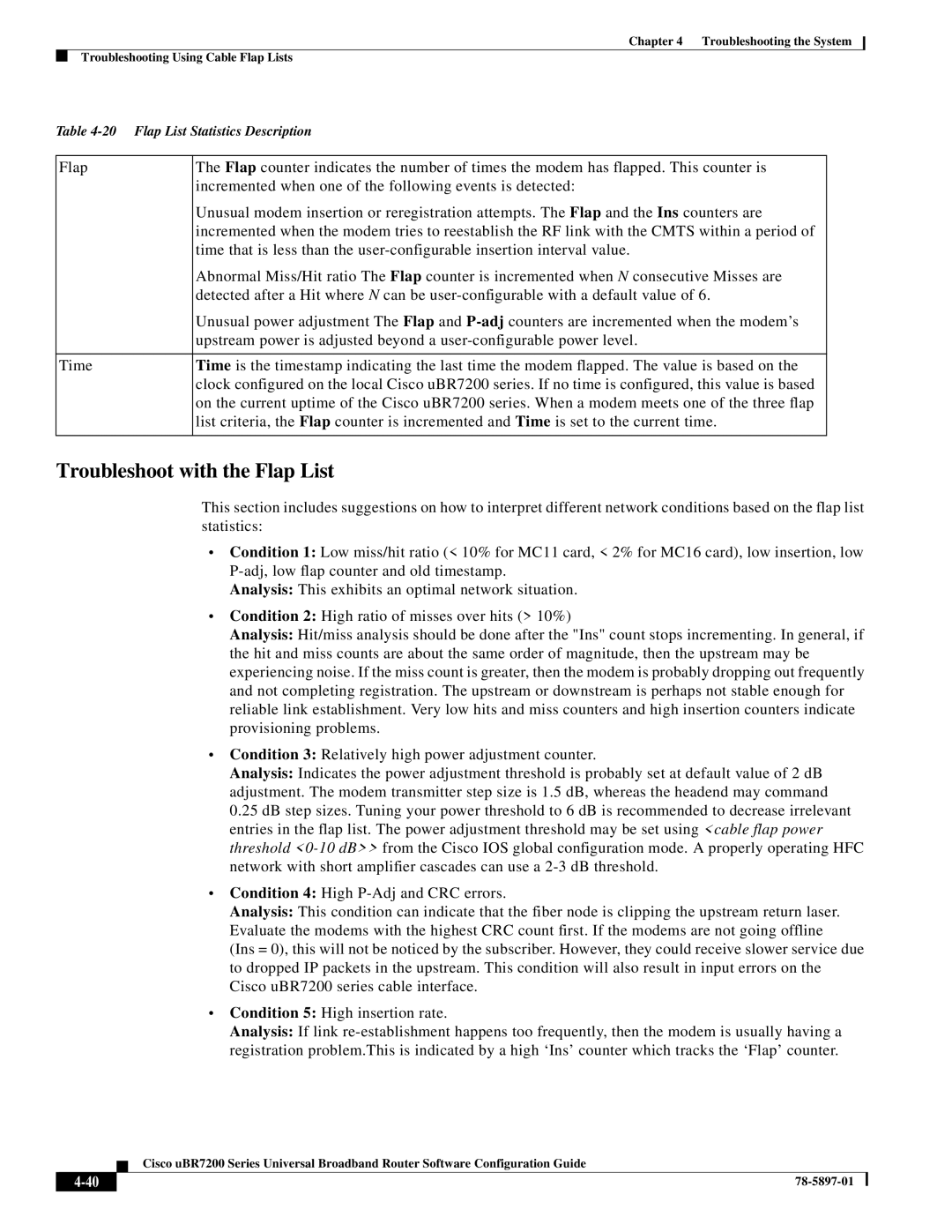
Chapter 4 Troubleshooting the System
Troubleshooting Using Cable Flap Lists
Table
Flap | The Flap counter indicates the number of times the modem has flapped. This counter is |
| incremented when one of the following events is detected: |
| Unusual modem insertion or reregistration attempts. The Flap and the Ins counters are |
| incremented when the modem tries to reestablish the RF link with the CMTS within a period of |
| time that is less than the |
| Abnormal Miss/Hit ratio The Flap counter is incremented when N consecutive Misses are |
| detected after a Hit where N can be |
| Unusual power adjustment The Flap and |
| upstream power is adjusted beyond a |
|
|
Time | Time is the timestamp indicating the last time the modem flapped. The value is based on the |
| clock configured on the local Cisco uBR7200 series. If no time is configured, this value is based |
| on the current uptime of the Cisco uBR7200 series. When a modem meets one of the three flap |
| list criteria, the Flap counter is incremented and Time is set to the current time. |
|
|
Troubleshoot with the Flap List
This section includes suggestions on how to interpret different network conditions based on the flap list statistics:
•Condition 1: Low miss/hit ratio (< 10% for MC11 card, < 2% for MC16 card), low insertion, low
Analysis: This exhibits an optimal network situation.
•Condition 2: High ratio of misses over hits (> 10%)
Analysis: Hit/miss analysis should be done after the "Ins" count stops incrementing. In general, if the hit and miss counts are about the same order of magnitude, then the upstream may be experiencing noise. If the miss count is greater, then the modem is probably dropping out frequently and not completing registration. The upstream or downstream is perhaps not stable enough for reliable link establishment. Very low hits and miss counters and high insertion counters indicate provisioning problems.
•Condition 3: Relatively high power adjustment counter.
Analysis: Indicates the power adjustment threshold is probably set at default value of 2 dB adjustment. The modem transmitter step size is 1.5 dB, whereas the headend may command
0.25 dB step sizes. Tuning your power threshold to 6 dB is recommended to decrease irrelevant entries in the flap list. The power adjustment threshold may be set using <cable flap power threshold
•Condition 4: High
Analysis: This condition can indicate that the fiber node is clipping the upstream return laser. Evaluate the modems with the highest CRC count first. If the modems are not going offline
(Ins = 0), this will not be noticed by the subscriber. However, they could receive slower service due to dropped IP packets in the upstream. This condition will also result in input errors on the Cisco uBR7200 series cable interface.
•Condition 5: High insertion rate.
Analysis: If link
Cisco uBR7200 Series Universal Broadband Router Software Configuration Guide
| ||
|
